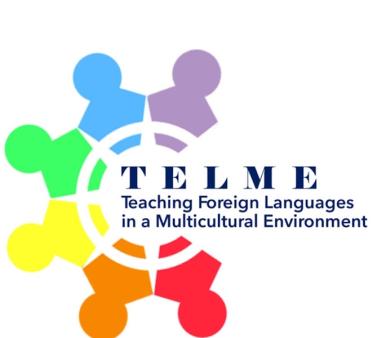Objectives
This degree trains future translation, localization and/or project management professionals and provides an introduction to interpreting with a view to facilitating optimal adaptation to market demands and to the status of these professions.
Skills
-
Technical and specialized translation (B language / C language)
-
Localization (software / web / video games)
-
Computers and tools (DTP, CAT, programming)
-
Project Management
-
Oral and written professional communication (B language / C language)
-
Terminology / phraseology
-
Proofreading / Revision
-
Post-editing
-
Quality assurance and quality control
-
Transcreation
-
Linguistics
-
Liaison Interpreting
Course Content
The course is divided into two pathways from Master 1 onwards (pathway 1: Translation-localization and project management and pathway 2: Technical communication and content strategy).
Specialization in the pathways is progressive because, although these are separate professions, they do involve some common skills. On average, 70% of modules are shared in M1 and 30% in M2, and the specialization is progressively built upon each semester in M1 and M2.
The degree course provides core modules as well as path-specific modules in translation and editing, computer science and the use of IT tools, in-house training, project management and in quality control. It also integrates core and specialized modules in the B and C languages (English + Spanish, German or Italian) over the two years. In addition, it includes a large number of project-oriented vocational modules and activities, with the aim of enhancing student employability. Some classes are shared with other Master’s corresponding to the same degree (the Translation and Interpreting Master’s Degree at the University of Western Brittany (UBO)) or to a different degree (the Linguistics and Language Teaching Master’s Degree at Rennes 2).
The year is organised over two eight-week sessions.
This new organization of the Master’s degree allows students to undertake internships earlier in the year (from the beginning of March), thus responding to a change in demand for internships (longer and earlier internships) from industry professionals. It also gives students greater flexibility to organize their internship(s) over the spring-summer period to ensure they meet legal requirements for successfully completing their internship over exam session 1.
Objectives
This degree, through its two pathways, trains future translation, project management and technical and specialist editing practitioners and provides an introduction to liaison interpreting with a view to facilitating optimal adaptation to market demands and to the status of these professions.
Skills
-
Specialized translation (B language / C language).
-
Computer science and IT tools.
-
Oral and written professional communication (B language / C language).
-
Terminology.
-
Technical editing.
-
Structured editing.
-
Content strategy.
-
Proofreading / editing.
-
Post-editing.
-
Project Management.
-
Quality assurance and quality control.
Course Content
The course is divided into two pathways from Master 1 onwards (pathway 1: Translation-localization and project management, and pathway 2: Technical communication and content strategy).
Specialization in the pathways is progressive because although these are separate professions, they do involve some common skills. On average, 70% of modules are shared in M1 and 30% in M2, and the specialization is progressively built upon each semester in M1 and M2.
The degree course delivers some core modules, then ones that are specific to the translation and editing pathways, and also in IT and proficiency of working tools, internal placements, project management and quality management. It also integrates core and specialized modules in B and C languages (English + Spanish, German or Italian) over the two years. In addition, it includes a large number of project-oriented vocational modules and activities, with the aim of enhancing student employability. Finally, it allows certain modules to be shared with other masters corresponding to the same degree (the Translation and Interpreting Master’s Degree at the University of Western Brittany (UBO) or to a different degree (the Linguistics and Language Teaching Master’s Degree at Rennes 2).
The layout of the year is two eight-week sessions.
This new organization of the Master’s degree allows students to undertake internships earlier in the year (from the beginning of March), thus responding to a change in demand for internships (longer and earlier internships) from industry professionals. It also gives students greater flexibility to organize their internship(s) over the spring-summer period to ensure they meet legal requirements for successfully completing their internship over exam session 1.




